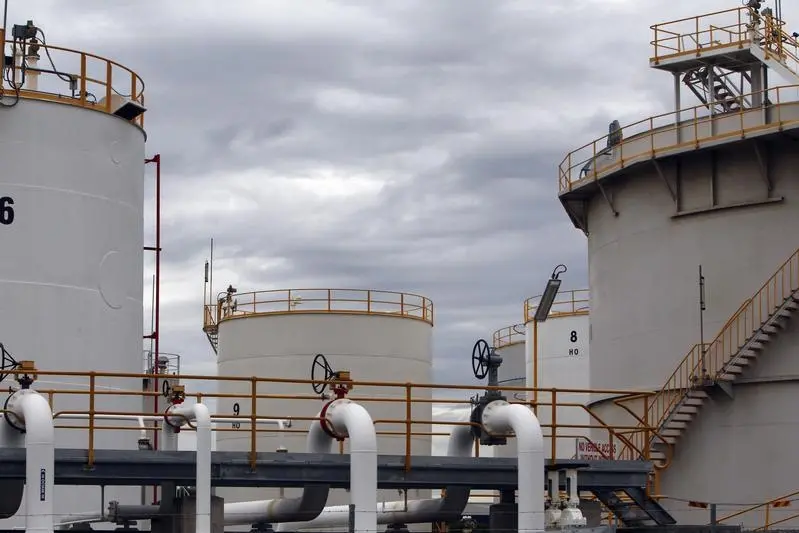PHOTO
Thursday 31st, March 2016
State-owned refining flagship Orpic's fuel storage hub at Al Jifnain is due to be commissioned next year, according to a key official associated with this strategically vital national project. Andres Suarez, General Manager at Orpic Logistics, which is constructing the Al Jifnain Terminal as part of Orpic's Muscat Sohar Product Pipeline (MSPP) venture, said more than half of Oman's fuel requirements will be delivered via this hub. "This is a first-of-its-kind project to be undertaken in Oman --removing the need for Orpic to ship refined products, and bringing a new level of efficiency and lower costs to its business.
Due to the reduction in reliance on fuel-tank truck transportation, in and around Muscat, heavy fuel-tank truck traffic in Muscat is expected to drop by 70 per cent," Suarez stated in an interview published in Tank Storage Magazine. Orpic Logistics, a joint venture between Orpic and Compañía Logística de Hidrocarburos (CLH), is executing the two-way multi-product pipeline project. The venture will enable the connection of Orpic's Mina Al Fahal (MAF) Refinery in Muscat and Sohar Refinery with a new storage and distribution terminal located in Jifnain via a bi-directional pipeline network. The pipeline network is split into three sections: MAF -- Jifnain Terminal: 40 kms, Jifnain Terminal -- Muscat International Airport: 30 kms, and Sohar -- Jifnain Terminal: 220 kms. Apart from meeting the domestic demand for fuel, which is growing at approximately 5 to 10 per cent per annum, this project will deliver numerous social, economic and environmental benefits, according to Suarez.
The products to be transported through the multiproduct pipeline network will come from Orpic's two Refineries - Mina Al Fahal in Muscat and Sohar Refinery in Sohar. Demand for oil products will be covered by domestic capacity at least for the next five weeks, thanks in significant part to the Sohar Refinery Improvement Project (SRIP), which will be significantly expanded when commissioned later this year. The operation of Al Jifnain Terminal, Suarez said, is based on highly automated processes which brings significant security to the logistics operations. The implementation of a fully automated philosophy is new to the Sultanate and is being fully supported by Orpic stakeholders. Commenting on the likely impact of low oil prices on fuel demand, the General Manager said: "Despite low prices of crude oil and refined products, that intuitively would represent an increase in the oil products demand, for the Sultanate of Oman, a country highly dependent on oil exports, this situation may slow down the growth of the economy and therefore the consumption of oil products.
Further, the prices of oil products in Oman, regulated by the government, have been increased in the beginning of 2016 and this could also have an adverse effect on the consumption of oil products. Nevertheless, it is still too nascent to conclude that the demand is being affected." He explained that the MSPP scheme represents only the first joint investment by Orpic and Compañía Logística de Hidrocarburos (CLH). "The MSPP project is the first investment of Orpic Logistics but opens the door for new projects that may include pipeline connectivity with neighbouring countries to increase the security of supplying oil products within the region and to facilitate the export of these types of products," he added. Suarez is due to showcase the capabilities of the MSPP project at the Tank World Expo conference due to be held in Dubai during April 12 and 13.
© Oman Daily Observer 2016





















